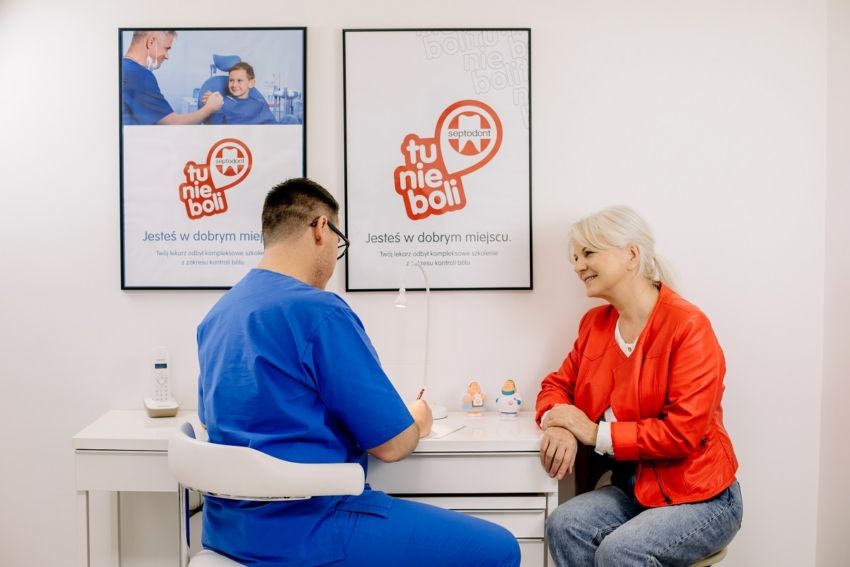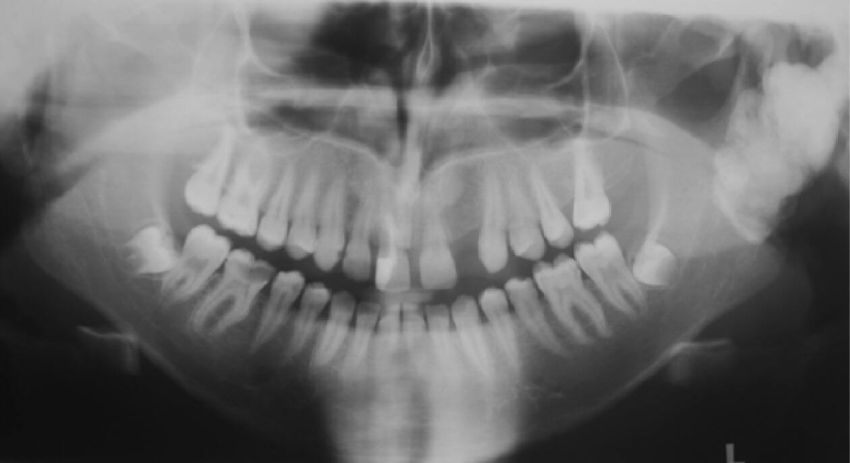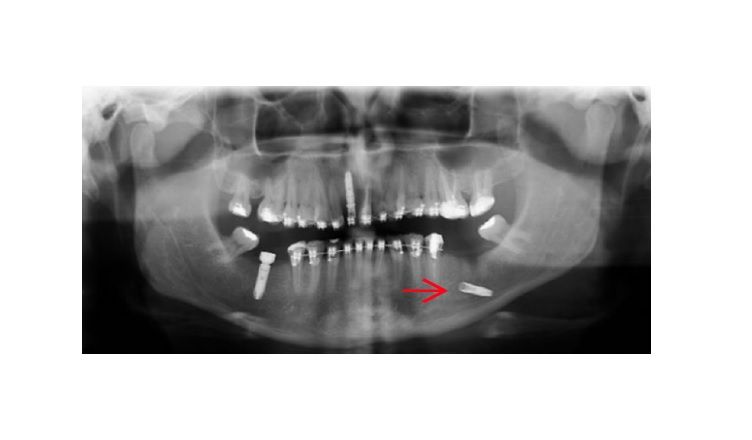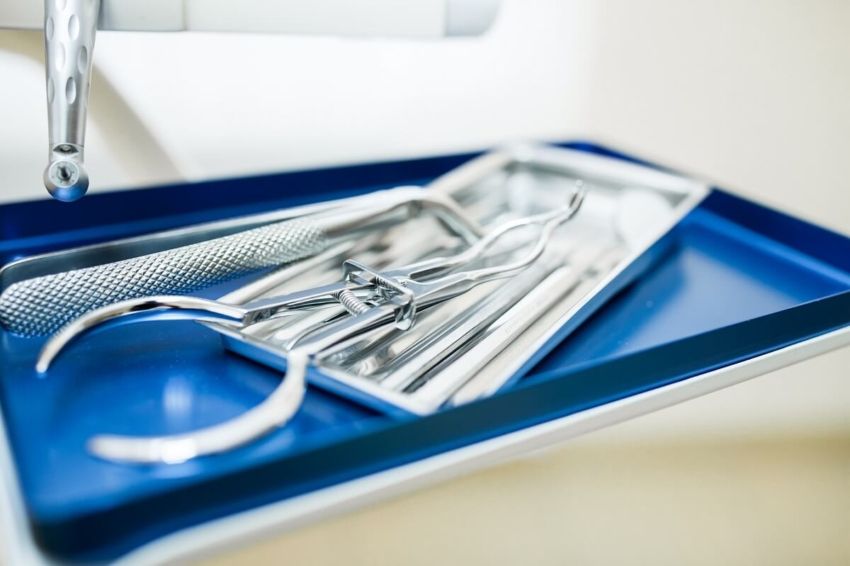A world without pain
Interview with Kamila Wojtulewska – Hanczaruk, initiator and originator of the Tu Nie Boli Program, General Director of Septodont, Central and Eastern Europe, Poland, Baltics, Russia and CIS.

Do we take proper care of oral health and hygiene?
According to the study*, the prevalence of tooth decay in Poland, increases from 41.1% in the group of children aged 3 years up to up to 93.2% at age 18! While the values of the rate of restorative treatment of deciduous teeth indicate that treatment needs are definitely not being met sufficiently. With regard to deciduous teeth, the percentage of satisfied needs for restorative treatment ranges from 7% in children at age 3 to 31% at age 10. We can find similarly alarming indicators in studies of adult patients. An aging population and an increase in the percentage of seniors in the Polish population are associated with an increase in health problems. This situation enforces the need to intensify preventive and educational activities dedicated to the elderly and their caregivers.
And how do we compare with other countries?
Unfortunately poorly. According to the widely accepted definition by the American Academy of Pediatric Dentistry, early childhood caries (ang. Early Childhood Caries – ECC) is considered to be caries of deciduous teeth occurring in children up to the age of 6 years old.
In Poland in 2017. The prevalence of ECC in 3-year-old children was 41.1%, and was, for example, 4.7 times higher than in Italy or 3.5 times higher than in England.
What, then, is an effective prescription for solving this problem?
It is, of course, prevention and regular visits to the dentist's office. The problem in this context is observed at basically every age stage of patients.
So why don't we just go to the dentist regularly?
This can, of course, be due to a number of factors. In the case of young patients, these may include m.In. Underestimation of the condition of a child's deciduous teeth by parents and/or lack of cooperation by the young patient. In the case of adults, in addition to financial aspects, it is simply fear. Often perpetuated based on their own traumatic past experiences, heard stories or simply – reproduced stereotypes.
What are the health consequences of neglecting oral prevention?
The consequences are serious, as oral health impinges on the health of the entire body. Tartar alone is not only a defect and a cause of bad breath, but can also result in sequelae such as periodontitis or caries.
People who avoid visits to the dentist because of anxiety risk tooth decay, gum disease, early tooth loss, and other health problems (e.g. cardiac problems). Dental research confirms that the condition of a woman's mouth can affect the course and timing of pregnancy termination. For many years, attention has been drawn to the role of a number of infectious factors in the etiology of rheumatoid arthritis. Recent studies clearly show links between the risk of developing rheumatoid arthritis and the infection diagnosed in most patients with periodontitis.
Where the idea for the Tu Nie Boli Program came from?
The aforementioned statistics speak for themselves: we are dealing with a significant health problem, and as statistics show, the most common reason for cancelling a dental visit is fear of pain. Recent studies indicate that as many as 36% of people experience dental anxiety and 12% experience dentophobia.
We decided to look at this topic in two ways: on the one hand, educating dentists on the broad topic of pain control in the dental office, far beyond material science or anesthesia techniques. These are in addition to psychological aspects, pharmacology or relaxation techniques. We teach how to talk to and deal with anxious patients and sensitize them to their needs. We certify doctors trained in this way with the Tu Nie Boli logo to make it easier to find your trusted lifelong specialist.

On the other hand, we feel a mission to join the promotion and communication of such an important problem directly to patients. We want to point out how important it is for their health to visit the dental office on a regular basis and the fact that, with properly trained medical personnel, they no longer need to fear pain.
For doctors, this means a group of loyal and satisfied patients not cancelling their appointments at the last minute and recommending such an office to their family and loved ones.For the patient, it means an end to the trauma of visiting the dentist and a greater openness to the visits made and their frequency.
As the slogan itself suggests, we want to disenchant the fear of the dentist! Point out offices where comprehensively trained doctors know exactly how to deal with the patient so that both the treatment and anesthesia procedure are carried out stress-free.
Are dentists eager to join this program?
I have to admit that very often the first reaction in conversations with dentists about pain control training is to say: "after all, I do anesthesia every day and I do it well", or "what do you want to talk about for two days of training on pain control"? – possibly an hour or two is enough". We are really proud when we not only manage to convince such a person that it is nevertheless worth dedicating their precious time to a given topic, but already after the training we hear that it was really worth it and that our participant is surprised how much can be said about it, how many aspects affect the patient's final perception of the visit and their potential pain experience. This is practical knowledge that can be used by a doctor in his own practice the very next day.
What the training cycle looks like?
The training under the District Medical Chamber's certified Tu Do Not Hurt program lasts two days. Doctors literally "immerse" themselves in the subject of pain control in a broad sense. Since these are small groups, max 15 people there is time for discussion, exchange of experiences and practical exercises. What's more, we are currently launching part of the web portal.tunieboli.en, which, available after logging in, will be available in its entirety to professionals. We hope that it will soon become known as a mine of knowledge in the context of the topic of pain control in the dental office. We already have, of course, further plans in store – cooperation in the context of education of dentists in terms of early diagnosis of oncological diseases. But that remains to be seen.
Can every dental office join the program?
We are committed to the goal that ultimately every dentist in Poland will be able to say about their practice or clinic "it doesn't hurt here". Importantly: we do not charge any fee for participation in the program. We also do not force interested physicians on this occasion to purchase any materials or equipment conditioning their entry into the program. The only cost is participation in the training, which is also subsidized by us. This is because the cost of organizing them in small groups while providing the best possible conditions and lecturers is significant. We also take on ourselves all marketing activities to promote the program among patients, information materials for doctors and the like.
Do you also train doctors who do not have their own practice?
Of course. Both those who apply individually, as well as employees of multisite practices who apply to us to certify the entire facility.
You want to say that a world without toothache is possible?
Definitely yes! We, in turn, feel responsible not only for providing knowledge and instrumentation to professionals, but also for spreading this information to patients by recommending facilities and doctors trained in this field.
*Carious disease and the condition of periodontal tissues of the Polish population. A summary of the results of the 2016-2019 study, edited by scientific prof. dr hab. Dorota Olczak Kowalczyk from the Medical University of Warsaw.



